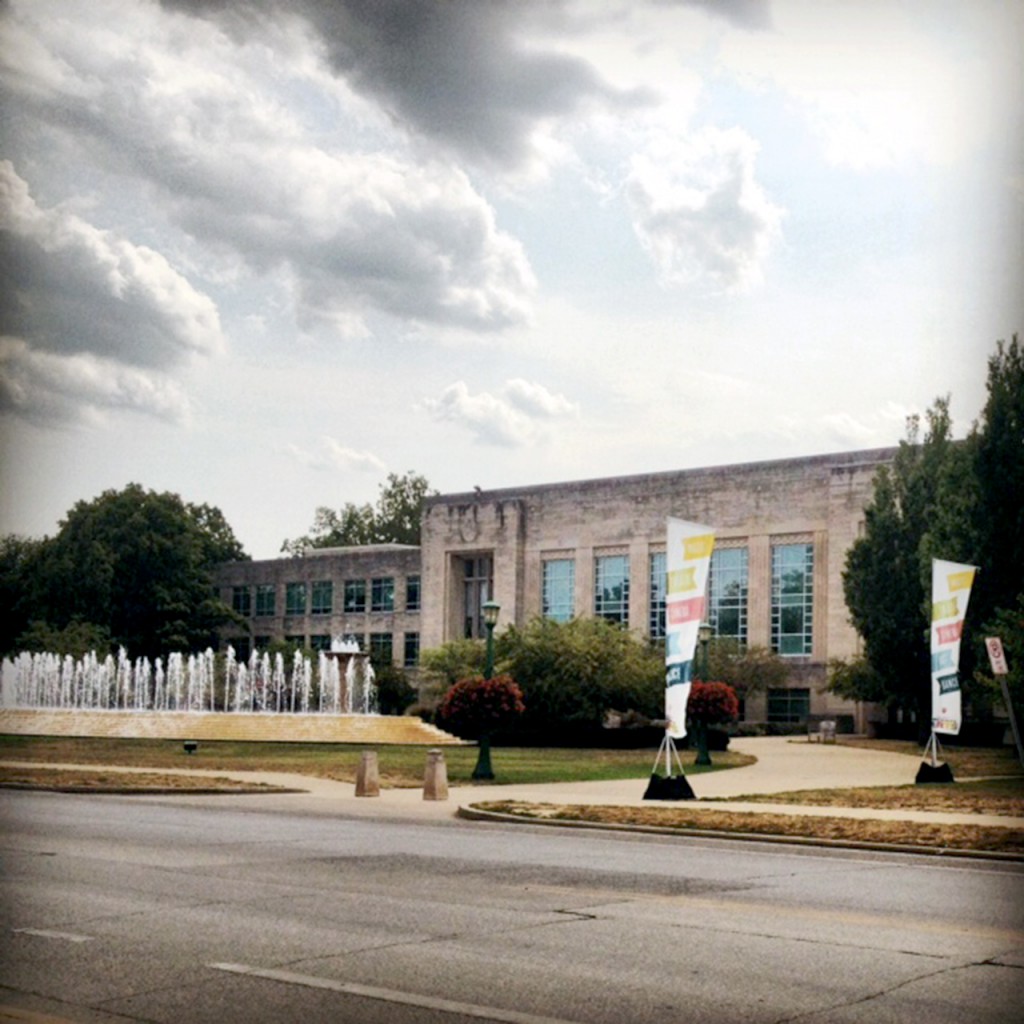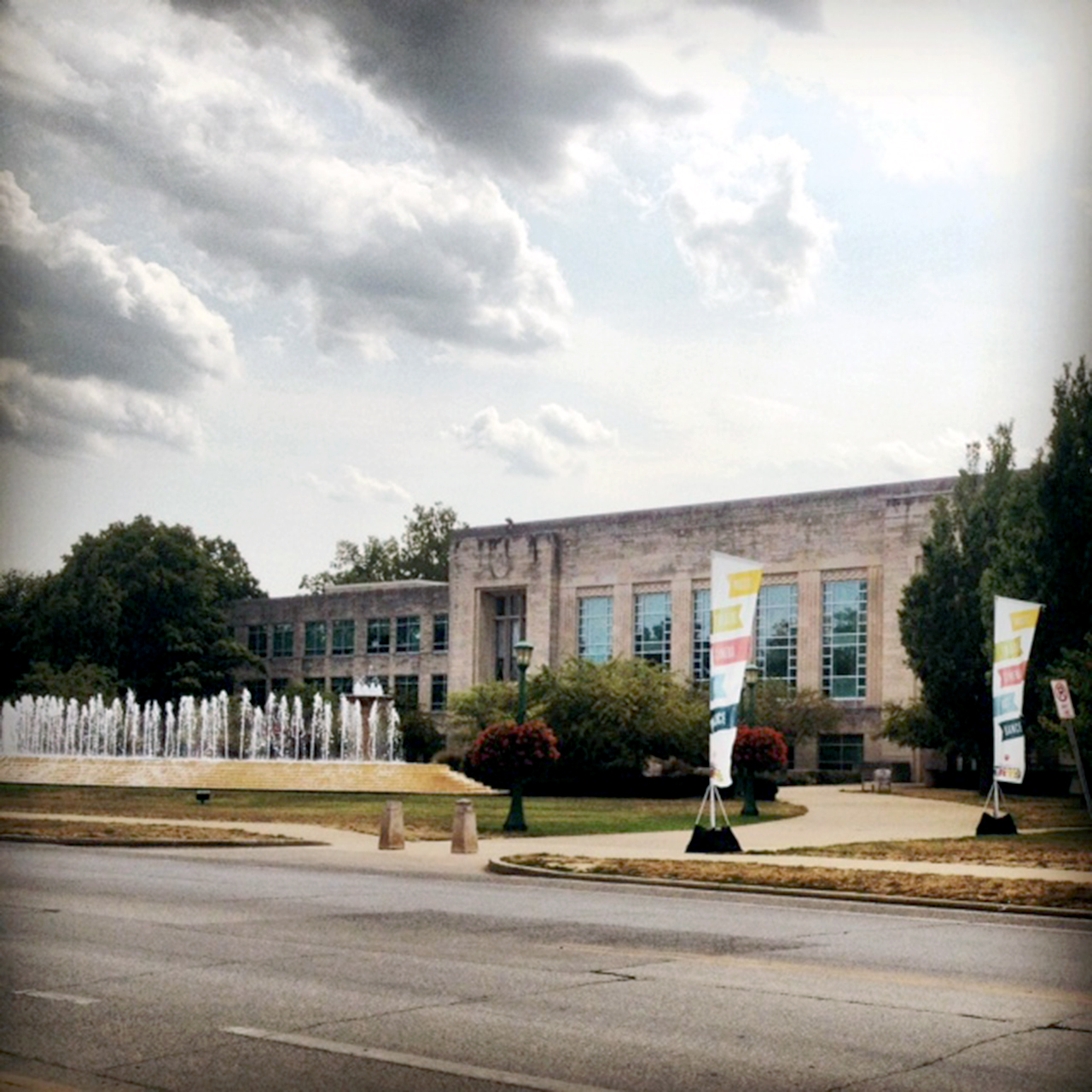
She calls it her “rad school search.” What most see as a stressful–and often expensive–graduate school search process, she has turned into a friendly competition.
Laura Pancoast, along with four other senior vocal performance majors, is busy with the frenzy of activity caused from applying to graduate schools. After her graduation from Concordia in Dec., Pancoast has been enjoying every moment of it.
On her journeys to visit schools of music at both Boulder University and Indiana University, Pancoast took pictures and posted them to her Instagram account with the hashtag #LauraPancrusin. The pictures started out as a competition between her and senior Pat Ross to see which university campus was prettier between Ross’ visit to Boston and Pancoast’s to Indiana.
After her first rad school trip, Pancoast decided to keep documenting her trips through pictures. She says so far her travel have all gone well, although sometimes it’s a surprise for her when “Minnesota nice” encounters other people’s attitudes towards auditioning.
“My friend from Boston was shocked that I would go up to other people and be like ‘Hey! What’s your name?’ being just a happy Cobber.”
Every place is different though, and Pancoast says the number one thing music students look for in a good music school is the faculty.
“I check to see if there are coaches and if there are Stephen’s there,” Pancost said referring to one of Concordia’s widely respected accompanists Stephen Sulich.
Senior Erik Krohg agrees with Pancoast.
“The key is contacting someone there and work with them to see if they’re interested in having you and that it’s someone you want to study with,” he said.
The process for applying to grad schools starts out similar to any other student’s, Pancost explained, minus the fact that they don’t have to take the Graduate Records Examination. First, music students complete the university’s general application and then apply specifically to that university’s school of music. This includes sending in a personal statement, resume and headshots.
A music student’s resume is different then typical listing of jobs and skills, however, they must list roles they’ve had in shows, solos from choir, recital work and repertoire they’ve worked on to showcase their musical abilities.
On top of all the paperwork that must be filled out, a professional prescreening recording must be sent in. Pancoast used the recital hall to record hers and says, “it’s nice we have that right here on campus.”
Once all the paperwork and recordings have been sent in, music students are notified if they get an audition to sing live at the school. Traveling to each school for a music audition has weighed heavy on these college student’s budgets. Krohg says the average application fee for him was about $100 and flights cost anywhere from $300 to $500.
“It’s a lot of money and I paid it all out of pocket from teaching,” Pancoast said. She teaches both piano and voice lessons to younger students during the school year and had money saved from summer work. Overall, the expenses for Pancoast totaled $1,345 just for two music school auditions over two weekends. This excludes the four additional times she drove to Indiana for visits.
Now, her auditions are complete and she will play the waiting game until either March or April to find out about acceptances and funding she could receive. She says she isn’t alone though, and has had support from her voice teacher Holly Janz, accompanist Stephen Sulich and fellow senior vocal performance majors, Erik Krohg, Russell Wustenberg, Anthony LaFrinier and Justine Scarbrough.
Sulich commemorated the music faculty at Concordia for their helpfulness to students.
“It’s such a supportive environment here and the teachers make sure students are showcasing themselves to the best of their abilities,” Sulich said. “We tag-team here and that’s conservatory level stuff.”

